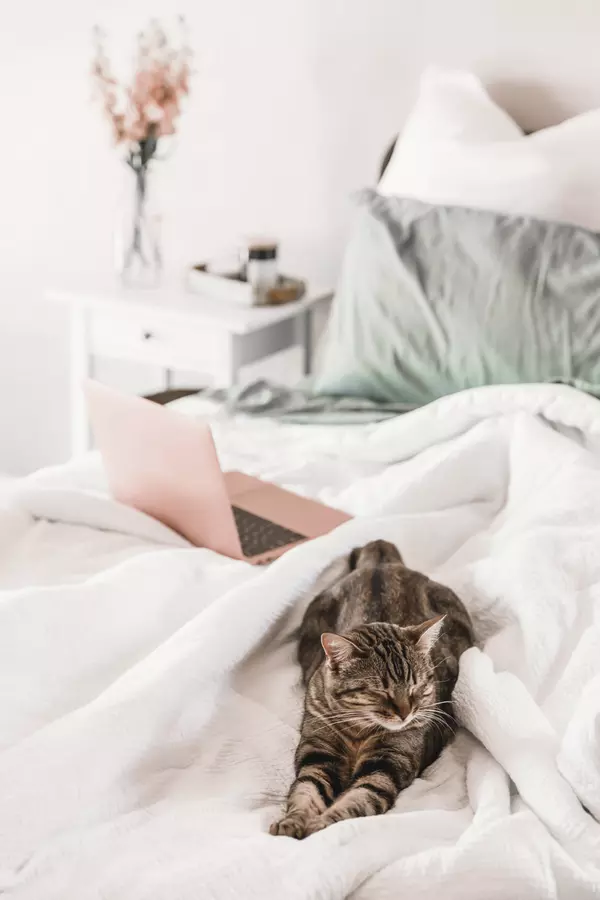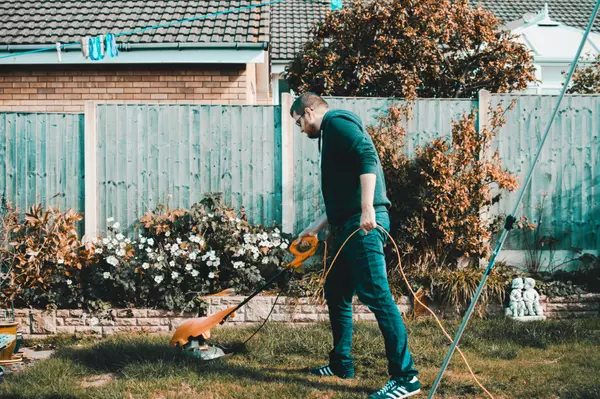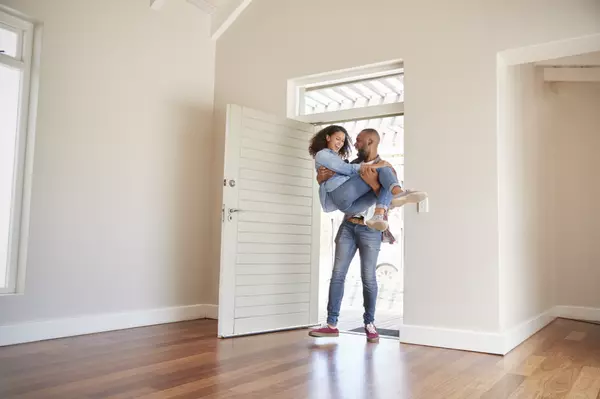
How to Pet Proof Your Home
Pet owners know that animals tend to be too curious for their own good. They will no doubt get into every nook and cranny of your space. Whether you’re buying or building a home for both you and your pets, or planning on adding a furry friend to the family, you need to consider the animals needs to avoid any illness or injury. Plus, you have your own needs for how you like to keep your home. Pets are known to destroy household items and leave their scent and hair everywhere. Luckily, there are things you can do to avoid all of this. A little planning can go a long way to help you streamline your daily routine and keep your pet safe and happy at your home. From toxic foods to mastering stain disasters, follow this guide to pet-proof your home so that you can enjoy the company of your furry friend stress-free for years to come. Paw-Safe Fabrics-Certain fabrics are more animal friendly than others. Look for fabrics that won’t be dramatically affected by wear and tear, such as the dog digging into your couches and/or the cat using your furniture as their own personal scratching post. We recommend Crypton Super Fabric, it’a germ and stain resistant fabric made with pet-owners in mind. You can find furniture made with this fabric at retail stores including: Arhaus, Pottery Barn, and Ethan Allen. Leather and Ultrasuede are also great easy to clean fabric alternatives. Paw-Safe Flooring-Opt for flooring that will be less work for you. Hardwood is always a better choice than carpet for pet-owners. For lightweight animals, any hardwood with a urethane finish should suffice, and for heavier animals, ceramic tile would be best. If you do prefer carpet, choose one that matches your pets fur coat color to help mask their hair. Be sure to ask your retailer for their pet-friendly options before making a final purchase. Clean Pet, Clean House-Taking on an animal is a big responsibility, not only to care for them but also to maintain your home. Remember to regularly clip their nails to minimize scratching, brush them often to minimize loose hair, and bathe them when necessary to avoid muddy prints and lingering smells. Vacuum the carpets, sweep the floors, and use tape on hard surfaces weekly to pick up any hair they may have shed. Stain Disasters-If your flooring and furniture isn’t ideal for pet care, then you’ll need to become a master at stain removal. Handle any accidents promptly because the longer the stain sits, the harder it is to remove. Use natural cleaning products with enzymes that break down stains and odors instead of just masking them. Petscaping Your Yard-Flea and tick prevention is a must if your animals spend any time outdoors, but that isn’t your only concern. You may need to build structures or install an invisible fence to keep your animal within your yard. You’ll also need to be weary of any toxic plants in your landscaping and remove them. All-Fours Inspection-Try to think like your pet to get a sense of what might be dangerous to them. The pros at Purina suggest that the best way to start is by taking "a puppy's eye-view" of things. You have to put yourself in your pet's place—get down on all fours—and take a look around. Watch out for: Electrical Wires- Animals love to chew on anything and everything they can get their teeth on! This can be very problematic when they sink their little teeth into an electrical wire. Electric shock can cause cardiac arrest, burns on the mouth, and affect their breathing. To make sure wires are out of reach, contain them inside walls or use electrical tape to keep any loose wires secure. Toxic Chemicals- Many common household chemicals can be toxic to your pets, effects include: burns, bleeding, blindness, or even death. To properly proof your home, keep these toxic substances locked up in cabinets and/or high enough that your pooch can’t reach them (beware of keeping things up high if you have a cat, they will probably still find a way to reach them). If your animal has already ingested something toxic, do not try to make them vomit on your own. Take them to an emergency veterinary facility and let the professionals handle it. Antifreeze- Antifreeze can cause neurological symptoms and kidney failure when ingested, and unfortunately animals are attracted to it’s sweet taste and smell. Store it high, tightly sealed, and be sure to take care of any spills thoroughly and promptly. Poisonous Plants- You’ll find in your pet-proofing that many of your potted plants need to go. Animals tend to eat flowers and play or dig in the soil. This is all fun and games for your furry friend until they accidentally eat or touch a poisonous plant. Check out these lists of poisonous plants for Cats and for Dogs. We recommend removing these plants from both the interior and exterior of your home, better safe than sorry. You’ll also want to be weary of any chemicals in the soil during lawn treatments. If you’re planning on doing maintenance to your yard, also plan to keep your animals inside until the project is complete. Plastic- Make sure plastic bags, bubble wrap, saran wrap, etc. never get left out where an animal can find it. They can easily choke and suffocate on these items. Heat-Producing Electronics- Be cautious of where your animal is when you are using any electronic or appliance that produces heat. You never know when the cat may jump on the stove, or your puppy may wander right into your lit fireplace. To avoid any burns, always use a fireplace screen. Toxic Foods- Just because you can eat it or drink it, doesn’t mean your fur baby can. Even though they may beg, you have to be cautious of what type of people food you give your pet. Here is a list of food that you should never give your cat or dog. Make sure to store these out of reach. Also, consider how you are storing your animals' food so that it stays fresh as long as possible. Don’t purchase any dog or cat food that already has a tear in the packaging. Hot Tubs/Swimming Pools/Toilet Bowls- Animals can accidentally fall into bodies of water around your home and there is a chance they could drown if they can’t get out. Always keep covers on your pool and hot tub when they aren’t in use. Keep your toilet lid down, especially if you use automatic bowl cleaners, to eliminate risk of poisoning. Keeping the lid down also eliminates a drowning hazard. If you’re looking to buy a new home for you and your four-legged friend, contact us or call 410.465.6900 today! Source

10 Things to Know When Choosing a Realtor
IT MATTERS WHO YOU WORK WITH.FOR US, REAL ESTATE IS ABOUT PEOPLE. NOT TRANSACTIONS. Choosing a Realtor can be a lot like dating. You need to find someone who is passionate, trustworthy, and best suits what you are looking for. Look below for the top 10 most important things to know when choosing a realtor. INTEGRITY | Is this person honest, ethical, and respected in the community and industry? KNOWLEDGE | Does this person have the ability to guide me through this entire process? RESULTS | Does this person have a proven track record to give me confidence in achieving my results? TRUST | Do I trust this person to genuinely represent me and my best interests? GOOGLE | When I Google this person, what do I find? TEAM | Does this person have a whole team of specialized professionals working together to serve me? EXPERIENCE | Is this person a seasoned real estate expert? PASSIONATE | Is this person’s passion for this industry evident? SERVICES | Does this person provide state-of-the-art staging, photography, client care, and marketing? LOCAL | Is this person truly familiar with my market? Our team sells a home every 3 hours, so you can be confident that we have the knowledge and experience to get the job done. For us it's not just about the transaction - because we strive to deliver the ultimate real estate experience. When you buy or sell with us, you get industry-leading services, strategies, tools, marketing, and technology from one of the top ranked teams with the largest real estate company in the world, Keller Williams Realty. You'll also have our team of experts to help navigate the process in the most streamlined and personalized way possible - to achieve your goals and exceed your expectations. That’s the Lucido difference. Let’s Chat! Get in touch with us to find your perfect match today!

New Year Plan to Get Organized
With the holidays over, the pain of having to take down decorations is upon us. If you’re hoping that you can fit another storage bin on your garage shelf without it breaking, it’s time to declutter. Productivity experts recommend tackling organization with a strategy; set a schedule and set reminders for yourself. To make the task easier, spread out the work.Below is a New Year plan to help you achieve your organization goals for the year, month by month. January- It’s okay if you didn’t like one or more of the gifts you got this year, but what’s not okay is keeping everything when you know it will never get used. Donate, return, or toss unwanted items, or toss older versions to make room for the new. February- It’s time to dump all the things you kept because you “might need them in the future.” If you haven’t revisited them in a year, chances are you won’t revisit them ever. This includes: old love letters, greeting cards, photos, and business cards from people you no longer correspond with. (You can scan sentimental items into your computer to save them without taking up physical space in your home.) March- Prepare your gardening tools for spring. Throw out all expired seeds, broken flower pots, and torn gardening gloves. April- Shred the files of papers and receipts you kept for tax purposes (after you file your taxes). Also, start going through old sports and outdoor equipment. Donate items your family doesn’t use or have outgrown, such as bicycles and baseball gloves. May- Before it gets too warm, go through old boxes in the attic or basement. Toss out any items may be broken or damaged from being stored. June- Evaluate the condition of travel gear for vacation season. Luggage and camping gear can take up a lot of space, so if you plan to replace these, try repurposing them or donate to a local thrift store. July- Survey your closet for spring and summer clothes. The ones you haven’t worn yet this season should be donated now so that others can wear them while it’s warm. Also, do an inventory of school supplies. Old markers, pens, and glue sticks may be dried up. Toss these, then make a list of what you need to buy for the new school year. August- Go through the kids' schoolwork that you have been saving. Only keep the best examples of their work and take photos of anything that may be taking up space. Displaying their artwork will help decrease the need for storing it, too. September- Now that the kids are back in school, you can focus on getting your private spaces organized. Purge old supplies from your home office and take stock of what you need for new projects. Consider purchasing storage bins and file cabinets for increased organization. October- Get ready for lots of food as the holiday season approaches by organizing your kitchen, starting with the pantry. Check expiration dates and toss expired items, chipped plates, bowls, and any rusted/bent cutlery. November- Weed through old holiday decorations as you begin to buy new ones. Donate the old ones you aren’t as fond of. December- Take the warm clothes you don’t wear to a charity. Someone else could surely use that old, never-been-worn sweater in the cold!
Categories
Recent Posts









